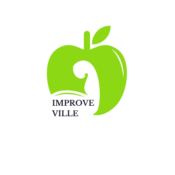In the digital age, the quest for a healthier lifestyle has taken center stage, with nutrition playing a pivotal role. The internet brims with a wealth of information on this topic, yet sifting through the clutter to find reliable, actionable advice can be quite a challenge. This article aims to serve as a beacon, guiding readers towards a comprehensive understanding of nutrition for healthy living.
Stay tuned as we delve into the world of nutrition, unraveling its complexities, and revealing how it can pave the way for a healthier, happier life.
 The Importance of Nutrition for Healthy Living
The Importance of Nutrition for Healthy Living
Grasping the basics of nutrition starts with understanding its integral role in the body’s functioning. The body constitutes a complex machine that needs specific nutrients to perform optimally. Macronutrients, which include proteins, carbohydrates, and fats, are the primary sources of energy for the body.
Conversely, a nutritious diet can bolster the immune system, promote efficient body functioning and sustain overall well-being. If knowledge is power, then learning about nutrition for healthy living read online can be a transformative journey towards optimal health.
Nutrition For Healthy Living Read Online
Amid the wealth of information on nutrition online, it’s crucial to get insights from reliable sources. This section will spotlight credible sites offering nutritional information and recommend some reputable online books on nutrition for healthy living.
Reputable Sites for Nutrition Information
When seeking nutrition advice, one must go straight to the experts. Websites managed by reputed health organizations should take priority. They include the American Dietetic Association, the World Health Organization, and the National Institutes of Health.
The World Health Organization’s site has segments on various global health topics, including nutrition-related diseases and global health initiatives. National Institutes of Health provides scientific articles, research, and links to various other resources.
Online Books on Nutrition for Healthy Living
Books, especially those written by recognized health professionals, are excellent sources for comprehensive and well-rounded insights into nutrition. Highly-recommended reads for nutrition information include:

- “What to Eat” by Marion Nestle – a deep dive into food politics, helping readers make sense of food labels and nutritional claims.
- “In Defense of Food” by Michael Pollan – a renegade assessment of the western diet, suggesting that real food and a return to traditional eating habits hold the key to better health.
- “Super Nutrition for Babies” by Katherine Erlich – it’s a beneficial guide for parents to ensure their babies get the best possible nutrition in the crucial early stages of life.
All these books can be read online to gain comprehensive knowledge of nutrition for healthy living. Remember, as you navigate through the sea of information, always be discerning and consult with a healthcare professional for personalized advice.
Tips for Utilizing Online Nutrition Resources
Harnessing the power of the internet for understanding nutrition is beneficial. Nevertheless, one must be cautious about the quality and authenticity of information.
How to Evaluate the Credibility of Nutrition Information
Evaluating online nutrition information ensures the absorption of accurate and relevant knowledge for healthy living. First, users can examine the author’s credentials ensuring that they’re experts in the field. For instance, an article authored by a registered dietitian or a certified nutritionist usually guarantees credible data.

They can scrutinize the references and sources used in the content. An article well-cited with scientific research, studies, and expert consensus typically establishes reliable information.
Lastly, analyze the website’s purpose and objective. If it’s primarily designed to promote a product or service, there might be inherent bias, potentially affecting the quality of the information provided.
Finding Tailored Nutrition Plans for Individual Health Goals
Online resources can provide tailored nutrition plans that cater to individual health goals. It’s vital, however, to ensure that they’re designed by certified professionals. Registered dietitians often create customized nutrition plans, accounting for factors such as age, gender, lifestyle, medical history, and food preferences.
Finally, it’s always best practice to consult with a healthcare provider or a dietitian who can provide professional, tailored advice and feedback on any online nutrition plan considered.

